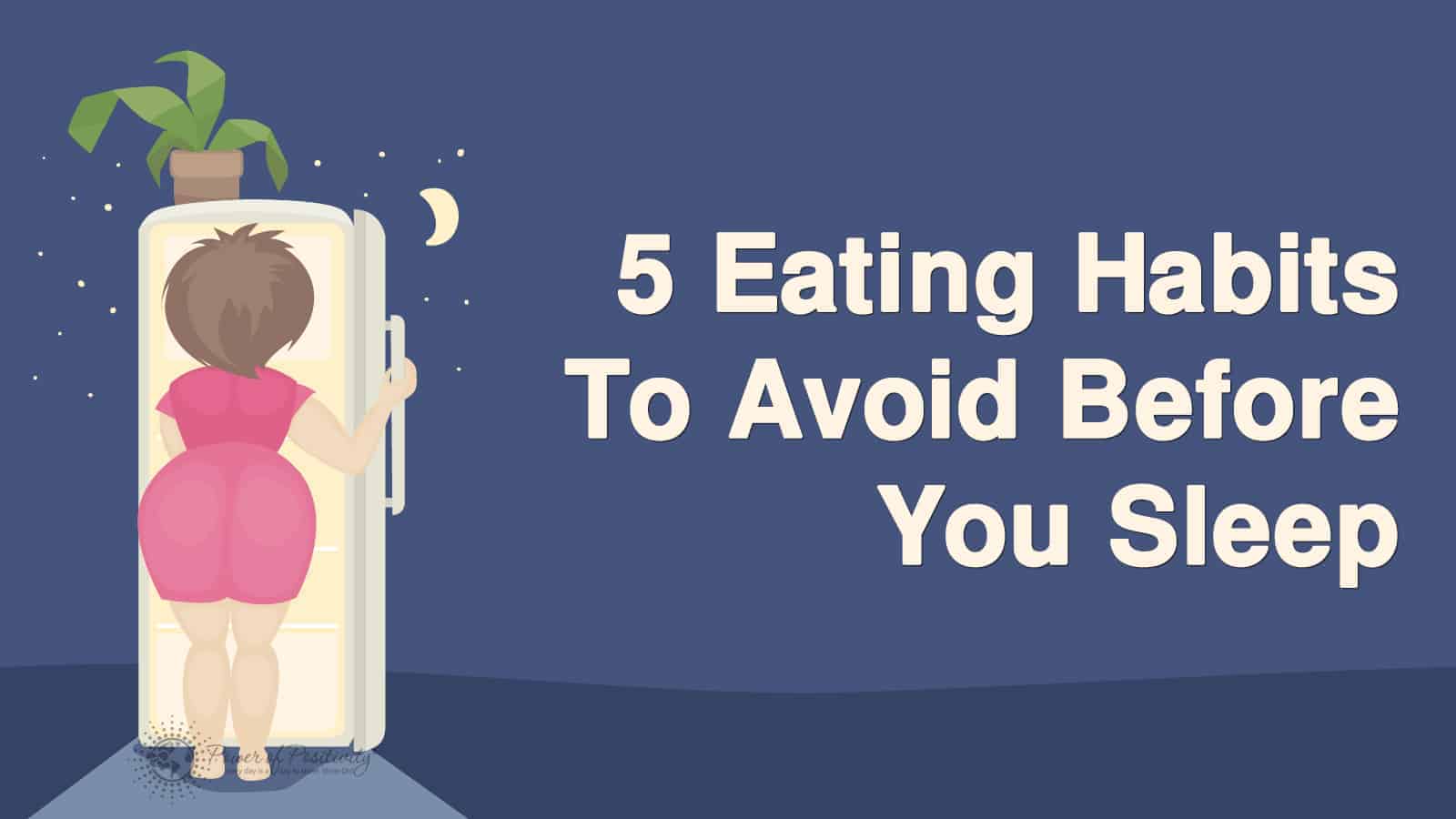Feeling tired but can’t sleep? You might not realize that your eating habits could be to blame, as the foods we do (or don’t) eat can mess with our sleep cycles. Some things might seem obvious, like not drinking caffeine or alcohol too close to bed, but other tips might surprise you. Read on to find out what eating habits to avoid before you sleep.
5 Eating Habits You Need To Avoid Before You Sleep
1. Eating dinner too early.
Just like you don’t want to feel too full when you go to sleep, you also don’t want to feel hungry, either. If you eat dinner at 5PM and don’t go to sleep until midnight or later, you might find your stomach growling for more food as you try to fall asleep.
To correct this, just prepare a small snack for yourself before bed, such as a glass of plant-based milk or a small protein shake, as protein will help your body to relax and become sleepy because of the tryptophan present. Try not to make the snack above 250 calories, as you don’t want to feel too full for bedtime. Avoid eating too late, however, as this could cause indigestion and heartburn.
2. Drinking coffee too late in the day.
Did you know it takes six hours for your body to eliminate just half of the caffeine you consume? This means that drinking coffee even six hours before bed can keep you awake at night. Caffeine can also cause anxiety in some people, which can contribute to insomnia. Try to drink your coffee in the morning and early afternoon, and if you have trouble sleeping at night, avoid drinking your afternoon cups of coffee.
3. Having a big dinner.
Ideally, you want to digest your food BEFORE you sleep, as this process can keep you awake at night. If you eat too large a meal before bed, your body will have to work on two processes at once; sleeping and digesting, which takes away from the energy your body needs to sleep. Try to have a bigger breakfast and lunch, and prepare a lighter dinner so that you can fall asleep easier at night.
4. Not eating enough foods that make you sleepy.
Our bodies need both serotonin and melatonin in order to sleep, so consider eating foods with these chemicals in order to get a good night’s rest. Many fruits and vegetables contain these chemicals, and you could even make a smoothie containing tart cherry juice concentrate, bananas, kiwis, and ice. Bananas contain magnesium and potassium, which help induce sleep, tart cherry juice concentrate can help increase melatonin (which also aids in sleep), and kiwis raise serotonin levels in the body. Serotonin does not make you sleepy, but it can calm you down before bed.
Related article: Doing This ONE Thing Makes It Easy To Eat Healthy
5. Eating dairy before bed
Consuming high-fat dairy products before bed could disrupt your sleep, according to new research published in the Journal of Clinical Sleep Medicine. Low-fiber, high-fat, high-sugar diets have been found to negatively impact how deep you sleep. High-fat foods can also take longer to digest, which means your body will once again have to use tons of energy to move the foods through your system while you try to get some shut-eye.
“Fat leaves the stomach last, after proteins and carbohydrates, so avoiding foods rich in fat close to bedtime is a smart choice,” says registered dietitian Lisa Stollman, RD.
Need some tips for a better night’s sleep? Here are a few that can help you to get more shut-eye.
- Keep your room dark, cool, and free from distractions. Turn off electronics a couple hours before bedtime, and do activities such as reading a book or meditating to get you sleepy. Turn off all artificial lights at least a couple hours before bedtime as well, since these lights can disrupt melatonin levels.
- Don’t drink too much water before bed, as this can keep you up all hours of the night running to the bathroom.
- Try relaxation techniques before bed, such as meditation, yoga, or deep breathing exercises in order to calm your mind for bedtime.
- Most importantly, remember that you deserve to sleep and eat well in order to fuel your mind, body, and spirit, so don’t sabotage your sleep!

















